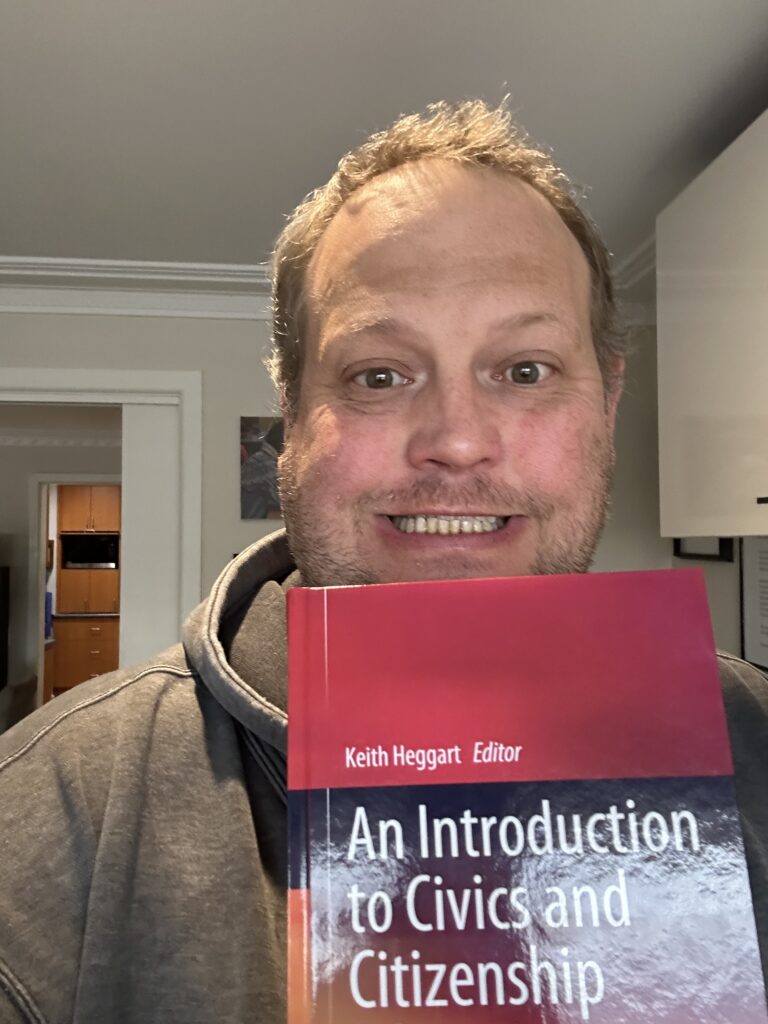So, last week, I announced that I had, with Springer, published an edited collection about Civics and Citizenship Education. Publishing a new book is always a big deal, but this one was a little bit different – as I mentioned in my previous post, this book was a collection of summaries that had been generated largely through machine learning tools developed by Springer. My role was, as I said before, something like an editor and a co-author.
Not surprisingly, my post generated (for me, at least) a fair amount of interest. Mostly, it was congratulatory, and also some people reached out to find out more about the process. Other people shared their thoughts about the process – some who had engaged with what I’d written about the process, and others who didn’t appear to have. Quite rightly, this is a topic of some debate – and I don’t think that debate is something that should be shied away from. After all, if nothing else, in academia, we should debate ideas, right?
One question that I think was particularly interesting – and which I want to respond to here, in a personal way – is a question that was raised by a well-known scholar (as part of a conversation on social media that has since been deleted). The question was ‘What’s the value of a book like this?’. That stimulated some thinking on my behalf, so I was keen to follow up with my thoughts on the topic. The way I see it, there are two main elements of value.
Firstly, there is the academic curiosity in engaging with a book production process like this. I wanted to know if it could be done – and also, if I could do it. While there had been other books done in this way, by Springer, they were mostly of quantitative research. Could Springer’s ML algorithm work as efficiently with other forms of research – such as the predominantly qualitative world of civics and citizenship education? My own intellectual curiosity is a good starting point, but perhaps not sufficient for the investment of this effort.
A more convincing reason, though, is that there’s value in and of the work itself. That is to say, there’s something of value in a collection of summaries of articles on various topics in the field. A response to this might suggest that this is the case – but the work of curating such a collection should rightly rely on the expertise of a subject matter expert or an academic – not an algorithm. And the machine generated summaries lack the intelligence and nuance of a carefully human-curated collection. Fair enough, I guess. But I think a valid response is to suggest that even these human-curated responses rely on algorithms and search engines – even if it’s just a matter of selecting tools to use for a literature review. Or, perhaps even worse, they rely on nothing so subjective as the human mind and memory. So, my first response is that this is a different of scale, perhaps, but not substance.
Secondly, I would suggests that there’s value in the book itself simply because it did not previously exist. I work in this field, and I have long been looking for a book that introduces possible students to some of the arguments and debates in civics and citizenship education. In my more optimistic moments, I have thought of writing such a book – but the fact remains that there is no such book. Therefore, students of the field may indeed find value in a book that can quickly introduce them to some of the key scholars, debates and works. Of course, there is no suggestion that this should replace a deep knowledge of the field – but rather that it’s a ‘way in’ to the field – and indeed, that’s the way it’s promoted.
Thoughts welcome.

